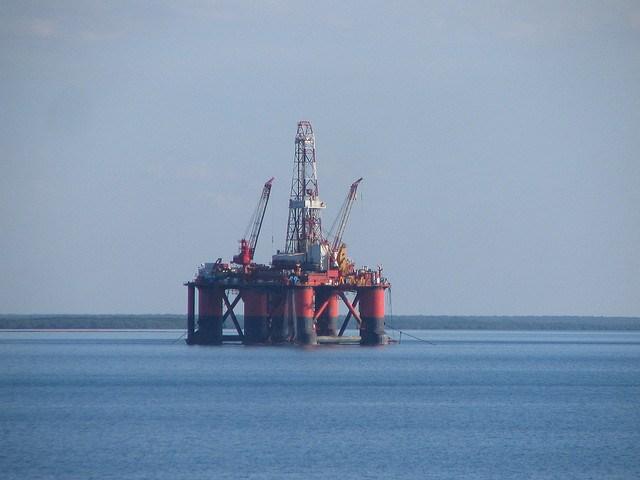
Climate change poses risks to the operations of oil and gas companies. Yet, large U.S. oil and gas companies are not giving adequate disclosures to their investors about climate-related risks to their operations. Not one of the 23 American oil and gas companies in the S&P 500 index included the potential impact of an international agreement to limit climate change in their most recent disclosures.
Ceres, a nonprofit organization focused on sustainability leadership, launched a new version of its Securities and Exchange Commission (SEC) Sustainability Disclosure Search Tool. The tool is a collaboration with CookESG Research and helps users explore the disclosures oil and gas companies give to investors about carbon asset risk. Ceres defines carbon asset risk as “the risk that the value of extracted and un-extracted fossil fuels, and assets for generating power from fossil fuels, will be impaired or even stranded under various carbon constrained scenarios.”
Playing around with the tool reveals a few disturbing things about ExxonMobil and Chevron, the largest American oil- and gas- producing companies, respectively. ExxonMobil holds nearly a third of the reserves accounted for by S&P 500 companies for 2014. However, in its 2015 10-K report to shareholders, the company only stated, “International accords and underlying regional and national regulations covering greenhouse gas emissions are evolving with uncertain timing and outcome, making it difficult to predict their business impact.” Ceres notes that the statement “appears verbatim” in all of Exxon’s 10-K reports from 2010.
Despite the fact that Chevron holds 11 billion barrels of oil equivalent in developed and undeveloped proven reserves, the oil company stated in its 2015 10-K report: “Continued political attention to issues concerning climate change, the role of human activity in it and potential mitigation through regulation could have a material impact on the company's operations and financial results. International agreements and national or regional legislation and regulatory measures to limit greenhouse emissions are currently in various stages of discussion or implementation.” It’s nearly the same statement repeated in its 10-K filings over the last six years.
Investors and legislators are concerned about climate risk disclosure
Last spring, 62 institutional investors representing almost $2 trillion in assets urged the SEC to push for oil and gas companies to better disclose climate change risks. The signatories to the seven-page letter pointed out that climate change risks will “profoundly affect the economics of the industry." The “risk of reduced demand for oil, uneconomic projects and stranded assets … is material to the companies and their investors, as it directly affects the profitability and valuation of the companies,” they added.There are reasons why investors are concerned with the business-as-usual approach of oil and gas companies, according to Ceres:
- Oil prices: While companies base their investment decisions on prices continuing to rise, the reality is that they are volatile. Presently, oil prices are below $30 a barrel, down from $110 per barrel 18 months ago.
- Demand: Fossil fuel demand is currently being affected by policies related to air quality, energy efficiency, renewable energy and subsidy reform. The EPA standards for power plants in the U.S. are a good example.
- Stranded assets: New investment in high-cost, high-carbon assets could end up stranded as global demand for fossil fuel declines in the future.
- Physical risks: Climate change brings risks to operations and those risks will be accelerated as companies invest in higher-cost, higher-carbon projects like oil sands.
- Growth of renewable energy: Renewable energy accounted for most of new electrical generation capacity in recent years because cost has dramatically declined. Of the $10 trillion projected investment in power generation through 2035, 71 percent is expected to be in clean energy.
Some U.S. legislators are also concerned with a business-as-usual approach. In November, four members of Congress sent a letter to the SEC asking the federal agency to investigate ExxonMobil’s past federal filings to see if the oil and gas giant violated securities laws by not adequately disclosing climate change risks to its operations.
The letter cited recent media reports about ExxonMobil that suggest the company publicly questioned climate change science while factoring impacts into its plans. “As members of the House Oversight and Government Reform Committee, we are deeply troubled by recent media reports alleging that ExxonMobil intentionally obfuscated the role of fossil fuels in influencing climate change,” the letter stated.
Image credit: Flickr/Ken Hodge

Gina-Marie is a freelance writer and journalist armed with a degree in journalism, and a passion for social justice, including the environment and sustainability. She writes for various websites, and has made the 75+ Environmentalists to Follow list by Mashable.com.














